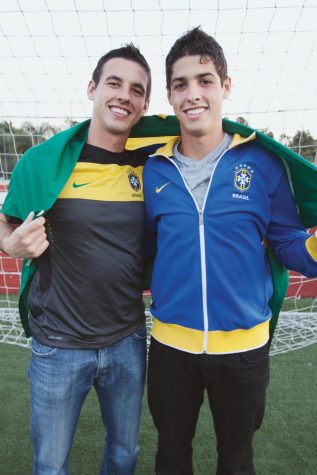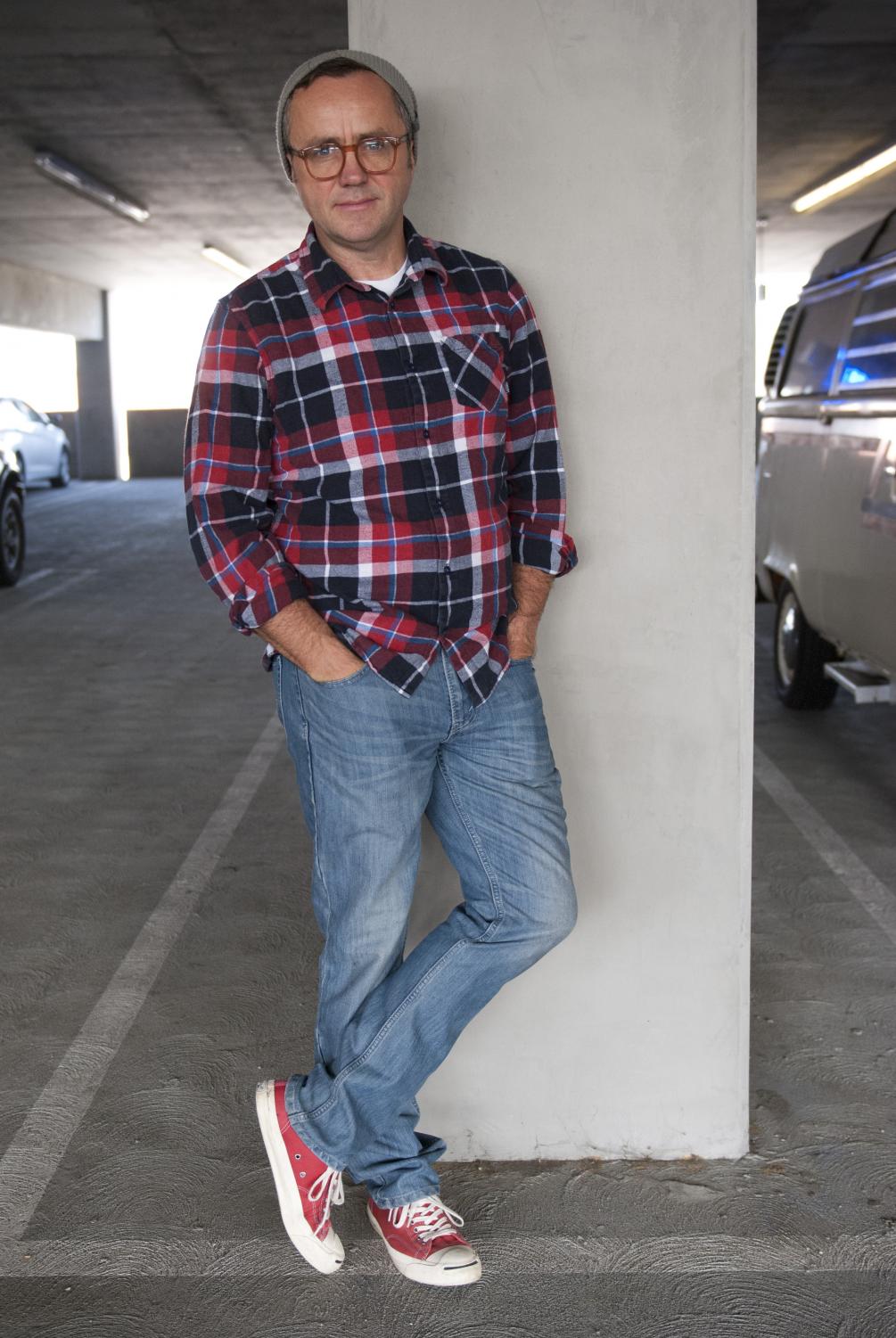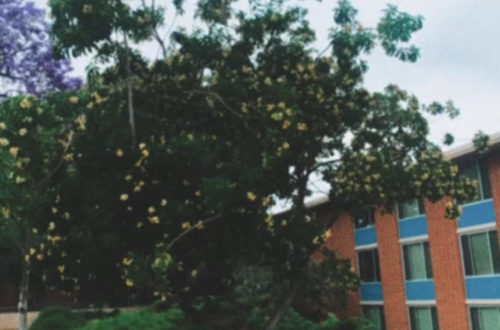Written by Stephanie Gertsch
Transitioning to college means facing the unknown—leaving behind your home and childhood friends, learning to live in a new world, and suddenly wondering, “Who are these hoards of twenty-year-olds in flip flops?” Whether moving just a few hours away or across an entire country, transitions make life more exciting, but also more difficult.
American-born college students wonder if there are any points of contact between themselves and an international student, or if they should respect cultural differences by holding off on cultural assumptions. Newcomers wonder if America is a safe place to learn and grow, or if they must constantly struggle against prejudice and misunderstanding.
As college campuses nationwide strive to include a more multicultural student body, these students meet one another in classrooms and cafeterias, churches and coffee shops. Their interactions create a third space where international students and American nationals alike step further out of their normative cultural mindsets and closer towards one another’s. In a land where, over forty years ago, Dr. Martin Luther King had a dream that these students would “walk together as sisters and brothers,” these little steps go a long way.
Humberto and Joao Toscan
“Language was the hardest challenge,” Joao Toscan says of the problems he and his brother faced in coming to an American college after growing up in Brazil. “Coming here was like being born again, because we had to start from the beginning — [it was] like being 17 years old and reading kids’ books,” says Humberto Toscan, Joao’s older brother. Writing a two-page essay, something most students do with hardly a thought, could take the Toscans three hours.
Joao came to Biola on a soccer scholarship in fall 2009, after Humberto had already transferred from a school in Michigan. Humberto originally visited Michigan as an exchange student in high school, finding the weather there much too cold — during his first blizzard, he discovered that a hoodie did not qualify as “warm clothes.” He came to Biola on a soccer scholarship, and now runs the school’s intramural sports organization.

The brothers came with negative expectations about American culture. Joao admits he expected Americans to be unfriendly to outsiders: “I was expecting people not to talk to me because I’m international, that they would not show their feelings. We heard in Brazil that Americans and Europeans were not as open as we were.”
Instead, the Toscans found people acted friendlier because of their cultural difference. Humberto cannot remember any encounter where people were rude to him because he came from Brazil. Instead, he says, “Everyone is really nice and asks questions. They think we’re really bold to come here, especially because we didn’t know any English.” Joao points out that people are more likely to get to know the brothers because people are curious about Brazil. In the Toscan’s case, coming from a different culture has led them to meet more people than they would have met otherwise. Joao also describes the support and friendship he has received from students and faculty at Biola: “Here you can talk about any topic you’re struggling with, and someone will try to help you out. People will do their best and there’s no one here who’s a jerk.”
After they graduate, the Toscans hope to stay in the United States to play soccer on a professional level or they could return to Brazil and help with the family transportation business.
Like many seniors, Humberto is still not sure where God’s plan will lead him. “We’re both gifted with the skills we have,” he says of himself and his brother. “We have what we need to make it at the professional level, but we don’t know if that’s God’s calling for us. No matter how much I want to play, if it’s not God’s calling we shouldn’t be doing it. It’s not like God’s going to come and say ‘I don’t want you to do this.’ It’s a process.”
Abby Chua
While the Toscans’ lack of English skills immediately marked them as foreigners, Abby Chua’s perfect English allows her to blend in with the other Asian-American students at Biola. Unlike most of those Asian-American students, however, Abby grew up in Taiwan, and this is her first time in the United States.
American culture was different from Chua’s expectations. “I expected the people here to be way more confident than any group of people I’ve been around,” she says. “Really confident and bold and outgoing, every single person.” She also expected Americans to be laid-back in their attitudes toward school, and to eat fast food every day. She was surprised to see that students were serious about their classes, and that the cafeteria had healthy options.
Culture shock was not the biggest issue for Chua, who had already been exposed to different cultures through going to an English-speaking school and traveling around Asia with her family. Instead, the hardest part of her first semester was dealing with being away from her family for the first time. Homesickness is an experience most college students can relate to.
Chua’s message for other international students is not to make the same mistakes she did in dealing with this displacement. To feel less alone, Chua filled up all her free time with activities with her friends. Outwardly, this looks like an international student successfully “assimilating” into American culture.
“I said yes to anything, anyone, anywhere, anytime UNLESS it interfered with my class time,” Chua recalls; “I had a lot of fun doing that; my way of living somewhat mitigated the pain I had from homesickness, but it didn’t heal me the way God heals and it destroyed my health.” Chua has a PSVT — or paroxysmal supraventricular tachycardia — which makes her heart palpitate. Normally, PSVT would not limit her goals, but the stress and lack of sleep made her heart palpitations worse.
For Months, Chua ignored nagging doubts about her dependence on others for happiness. Eventually she asked God point-blank to show her why her lifestyle was bad. The next day she realized she was wasting opportunities he had given her — not taking care of her health or making the best of her international experience. She started getting eight hours of sleep a night and saying no when her friends want to stay out late. “If I continued living the way I did first semester,” Chua says, “I could literally die early. So in the long run I’m not missing out when I live the way God wants me to live.”
Rebeca Aulie
Rebeca Aulie calls herself a “hidden immigrant.” Like Chua, she blends in with American culture. But even though Aulie looks Caucasian, she grew up with her missionary parents and four siblings in Mexico City, and consequently identifies herself as Hispanic. Aulie says traveling and experiencing different cultures created strong ties among her family members —many of whom have their own stories of experiences with diversity. Her sister was adopted from a Mayan village, her older brother teaches at a school in Kurdistan, and another sister is married to an Ethiopian she met in Cuba.
Aulie says her freshman fall was probably easier than most students because she was used to adjusting to different environments. Some things still troubled her, however. Her family warned her about individualism and obsession with image in Los Angeles. Aulie also encountered differences in gender roles in America. For instance, she was used to men opening doors for women, pulling out chairs, and being quick to help.
“When I neither received nor observed these basic manners,” she says, “I became discouraged, disappointed and occasionally shocked.” In addition, American church services were hard to adjust to, since Aulie missed the salsa rhythms and the people dancing in the aisles. Though Aulie was used to transitioning between cultures, living in America still felt like a new arena.
Originally, Aulie did not want to come to a Christian university. She preferred the idea of being a “light in the darkness,” and was put off by the mediocrity in Christian schools. Her experience of Biola has shown her a school with many underlying issues.
“At Biola,” she says, “you see a split campus between those that really seek God out, and the ones who merely hold the name.” As it turns out, Biola is also a place in need of light. Aulie says the faithful people she has met during college have greatly encouraged her, as “amidst the division of true faith on Biola’s campus, there are so many students who are vibrant for knowing who God is and how to glorify Him with their lives.”
For Aulie, the greatest struggle of living in a different culture was, and still is, being misunderstood. Since her looks let her blend in with the majority, but her cultural background and mindset make her stand out, she often finds herself in situations where people misjudge her. She describes how people will assume she has the same cultural prejudices.
“Many people will say Mexican jokes having no idea that I am Mexican, and some of the comments really hurt. Or, if they do know, they will say ‘No, you are different,’ which to me undermines the intense patriotism I feel for my country, because that comment separates and makes me superior from my people, when I want to be known with them. Mexico is who I am.”
When she is in Mexico, however, she does not fit in either — because she looks different. Both of these experiences have given her hard-won knowledge about herself and the inadequacies of cultural labels.
Aulie still gets frustrated when people approach her with ignorant attitudes. According to Aulie, everyone is still living in ignorance. Her response has been to stand up to this ignorance in a way that includes grace — which she hopes will help others find way to learn from each other and gain understanding that will make these transitions easier for everyone.
Dreams change
Where Dr. Martin Luther King Jr. once talked about black and white children joining hands to sing, we now talk about concepts such as “cultural displacement” and “invisible immigrants.” The notion of different cultures living in unity still makes up a significant ideal in the American dream. The picture is less black and white now, expanding to include a variety of backgrounds and viewpoints. The college campus creates a uniquely intimate setting for their backgrounds to mix together.
In a four-year university, students experience “culture shock” even with students of their own nationality — roommate conflicts, unusual comments in class, having to figure out how to use new systems like the library or online housing. The college campus levels the playing field for cross-cultural experiences, since it forces every student to have one.
While international students face many of the same problems as other students when going away to college — displacement, homesickness, loneliness, and misunderstanding — they also value their experience as a unique part of their identity and personal growth. What makes these experiences unique are the details that students like the Toscan brothers, Abby, and Rebeca bring in their stories.
A multicultural campus involves more than just students of different cultures learning side by side — it is a chance for people going through the strange, shared experience of college to turn and meet each other, and redefine themselves by seeing through another’s eyes.





